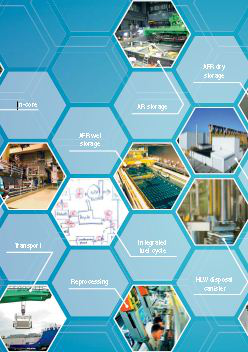Speaker
Dr
Ingo Reiche
(German Federal Office for Radiation Protection (BfS))
Description
There are different concepts for management of spent nuclear fuel, including wet storage in pools and dry storage in welded canisters or in dual-purpose transport and storage casks. But all of them require transport of the spent fuel, at least transport to the final destination after the interim storage period. This presentation analyzes how this safe transport of spent fuel after several decades of storage is reflected in the transport regulations and how it can be achieved for different storage concepts.
For any transport package it must be ensured that the conditions of the packaging and contents at the beginning of shipment meet the conditions the package design safety analysis is based on. For dry storage of spent fuel this requires that the ageing and the ageing management have to be considered as early as in the design phase for the storage and transport arrangements and have to be considered for the package design approval and the approval of the storage site.
The need of consideration of ageing for packages to be stored for a long time before transport can be derived from the current IAEA transport regulations already, but these regulations or the corresponding guidance could be improved to strengthen this requirement, as is discussed in the presentation.
On the other hand Germany has developed and applied a concept for transport related ageing assessment and management during dry storage of spent fuel in transport and storage casks. This concepts consists of approval of the package design for transport as a prerequisite for transport and for the interim storage license, followed by review and renewal of the certificate during interim storage period and use of certificate at the end of the interim storage period, including pre-defined actions to be taken before the shipment of the DPC from the facility to the final destination. Experiences from this regulatory concept are presented in the second part of the presentation, as well as consequences for other storage concepts.
Country/ int. organization
Germany
Author
Dr
Ingo Reiche
(German Federal Office for Radiation Protection (BfS))
Co-authors
Mr
Frank Nitsche
(Federal Office for Radiation Protection (BfS))
Mr
Frank-Michael Börst
(Federal Office for Radiation Protection (BfS))

